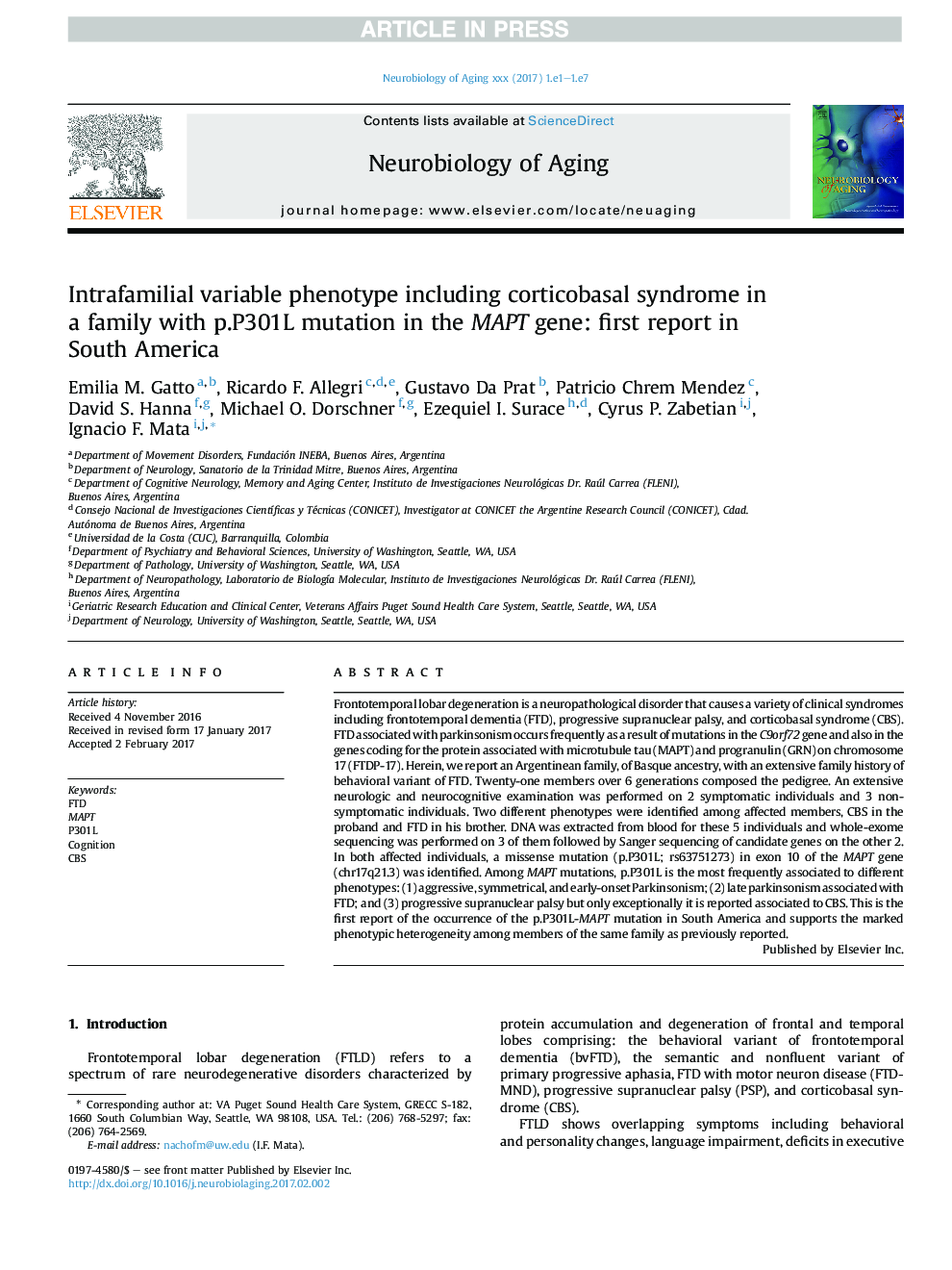| Article ID | Journal | Published Year | Pages | File Type |
|---|---|---|---|---|
| 4932633 | Neurobiology of Aging | 2017 | 7 Pages |
Abstract
Frontotemporal lobar degeneration is a neuropathological disorder that causes a variety of clinical syndromes including frontotemporal dementia (FTD), progressive supranuclear palsy, and corticobasal syndrome (CBS). FTD associated with parkinsonism occurs frequently as a result of mutations in the C9orf72 gene and also in the genes coding for the protein associated with microtubule tau (MAPT) and progranulin (GRN) on chromosome 17 (FTDP-17). Herein, we report an Argentinean family, of Basque ancestry, with an extensive family history of behavioral variant of FTD. Twenty-one members over 6 generations composed the pedigree. An extensive neurologic and neurocognitive examination was performed on 2 symptomatic individuals and 3 nonsymptomatic individuals. Two different phenotypes were identified among affected members, CBS in the proband and FTD in his brother. DNA was extracted from blood for these 5 individuals and whole-exome sequencing was performed on 3 of them followed by Sanger sequencing of candidate genes on the other 2. In both affected individuals, a missense mutation (p.P301L; rs63751273) in exon 10 of the MAPT gene (chr17q21.3) was identified. Among MAPT mutations, p.P301L is the most frequently associated to different phenotypes: (1) aggressive, symmetrical, and early-onset Parkinsonism; (2) late parkinsonism associated with FTD; and (3) progressive supranuclear palsy but only exceptionally it is reported associated to CBS. This is the first report of the occurrence of the p.P301L-MAPT mutation in South America and supports the marked phenotypic heterogeneity among members of the same family as previously reported.
Related Topics
Life Sciences
Biochemistry, Genetics and Molecular Biology
Ageing
Authors
Emilia M. Gatto, Ricardo F. Allegri, Gustavo Da Prat, Patricio Chrem Mendez, David S. Hanna, Michael O. Dorschner, Ezequiel I. Surace, Cyrus P. Zabetian, Ignacio F. Mata,
